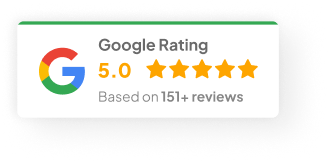31 Jan 25
Which Of The Following Best Explains The Relationship Between The Internet And The World Wide Web?
If you’ve spent more than five minutes online, you’ve probably heard people toss around Internet and World Wide Web like they mean the same thing. I mean, even most tech people use them interchangeably. But truth is — they’re not the same. Not even close.
Understanding the difference can save you a lot of head scratching, especially if you ever find yourself chatting with IT guys, reading about cloud computing, or working on anything to do with digital infrastructure.
Let’s break it down. No fluff. Just the real deal.
What Exactly Is The Internet?
The Internet is the giant. It’s the whole damn system that connects billions of devices all over the world. Think of it as the plumbing under your house. You don’t see it, but it carries all your data — emails, video calls, file transfers, you name it — from one point to another.
It’s built on standardised protocols like TCP/IP (Transmission Control Protocol/Internet Protocol). Without getting too nerdy, that basically means your computer speaks the same language as everyone else’s so they can exchange information properly.
I remember back in 1998, I set up my first business network using a dial-up modem and 56k connection — painfully slow, but it was still the Internet doing its thing: moving data between machines.
The Internet powers:
-
Email (think Gmail, Outlook)
-
File transfers (Dropbox, Google Drive)
-
Video streaming (Netflix, YouTube)
-
Online gaming (Fortnite, Call of Duty)
-
Messaging apps (WhatsApp, Skype)
Quick Backstory
The whole thing started in the late ‘60s with ARPANET, a project by the U.S. Department of Defense. From there, it snowballed into the global beast we rely on today.
So Then, What’s The World Wide Web?
Here’s where most people get tripped up.
The World Wide Web is not the Internet. It’s one of the services that runs on the Internet. Basically, it’s all those websites, pages, images, videos, and articles you browse every day.
You fire up Chrome or Safari, type in a website address, and voilà — you’re on the Web. Behind the scenes, your browser is using HTTP (HyperText Transfer Protocol) to fetch and display all that content.
Without the Internet, the Web wouldn’t exist. But without the Web, you’d still have the Internet — just a much more boring version of it.
Quick Backstory
A British scientist named Tim Berners-Lee dreamt up the Web back in 1989 while working at CERN. At first, it was just a simple way for researchers to swap papers and info without the usual headaches. Fast-forward 30 years and now we’ve got TikTok dances and online shopping for everything from socks to cars.
The Core Differences (Let’s Simplify It)
Here’s the cheat sheet:
-
The Internet = Global network that connects computers and devices
-
The World Wide Web = Collection of websites and content you access via browsers
-
The Internet = Handles everything from emails to online gaming to file sharing
-
The World Wide Web = Handles webpages, articles, videos, social media feeds
-
The Internet = Built on TCP/IP
-
The World Wide Web = Built on HTTP/HTTPS
How They Work Together
Think of the Internet as the roads and highways. The Web is one type of vehicle riding on those roads.
When you watch Netflix, for example, you’re technically not on the Web — you’re using the Internet for streaming video data directly from Netflix servers. But when you read this blog post? You’re definitely on the Web.
Other online services riding on the Internet include:
-
Cloud computing (AWS, Google Cloud)
-
IoT devices (smart fridges, security cameras, smartwatches)
-
Online backups (iCloud, OneDrive)
Why People Still Confuse Them
Honestly, it’s because most people just care that it works.
When your WiFi’s down, you say, “the Internet’s not working.” Whether you were scrolling Instagram (Web) or sending emails (non-Web), it all feels like ‘the Internet’.
But in tech circles — especially when we’re talking online security, digital infrastructure, or data transmission — knowing the distinction matters.
Why You Should Care
Look, if you’re just browsing cat videos, you probably don’t need to lose sleep over this.
But if you’re running a business, building a website, managing data, or talking to developers, understanding this stuff helps you:
-
Speak the right language with IT teams
-
Understand security risks on both levels
-
Know how services like cloud storage or IoT devices actually operate
-
Avoid getting sold some dodgy “Internet solution” by vendors who barely know what they’re selling
The Digital World Is Bigger Than The Web
These days, the Internet is evolving even further. Cloud computing has made data accessible from anywhere. IoT connects billions of tiny devices. AI tools (like the one you’re reading from now) rely on high-speed, low-latency networks that barely existed 10 years ago.
And the Web? Still just one slice of this monster pie.


